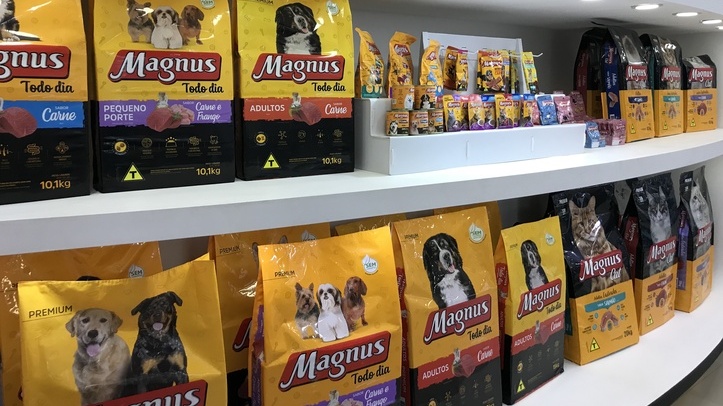For many in the UK, Brazil might not be the first country that comes to mind when thinking of international leaders in the global pet products industry. But the massive country also has a massive pet market and potential for further growth, as PBW News discovered when given the opportunity to attend a tour of three pet businesses at the invitation of trade association Instituto Pet Brasil.
One of the largest pet food manufacturers in Brazil is Adimax. Founded in 2002, the company has grown through a series of mergers to be in the top three suppliers of dog and cat food in the country today.
At the company’s main site near Sao Paulo, five separate plants work in unison – two of them making extruded kibble products, one making wet food, one for baked products including biscuits and treats and one to create premixes for use as ingredients in the other four facilities.
Adimax is probably best known for the Magnus brand – a premium dog food that has become a household name in the country since its launch on 2007. Other brands include Magnus Supreme, which features additional protein; Origens, a premium brand for special diets; Formula Natural, a super-premium grain-free product and Formula Natural Vet Care, a version for pets with special dietary needs. The firm also produces the Quality brand designed specifically for the supermarket sector and some private label lines for specific customers. Origens is growing particularly strongly, offering as it does a range of breed-specific recipes featuring different-shaped kibble.
As well as occupying a strong position in the domestic market, Adimax exports to a number of countries across Latin America, Eastern Europe, the Middle East and Africa.
The company also invests in a number of charitable and community activities including support for children with disabilities, elder visit programmes, soccer schools for the disabled and those on lower incomes and football and volleyball sessions for disabled and blind participants.
It also runs the Adimax Institute, the largest guide dog training centre in Latin America, situated close to its main factory.
The centre has a maternity unit where future guide dogs and assistance dogs are born, and then the puppies are sent to live with volunteer families for a year to be socialised in human company. After a year, they return to the Institute for full training and to be matched with an owner in need.
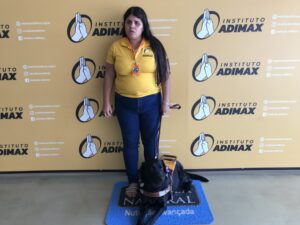
So far, the Institute has delivered 93 guide dogs and 36 assistance dogs, accounting for nearly half of all guide dogs successfully placed with owners in Brazil to date.
Grooming specialists
One of the most impressive facilities in Brazil is owned by Pet Society, an industry leader in grooming and pet cosmetic products for professionals and end consumers.
The business began as a small pharmaceutical company for humans and still insists on using human grade ingredients and medical grade water for its pet care products – indeed, it has a licence to produce human cosmetics, too.
Pet Society operates from a 7,000sq ft site with its own laboratory testing facility, with a separate site given over entirely to research and development. The company also has its own dedicated training centre and organises grooming shows and seminars in Latin America and the US.
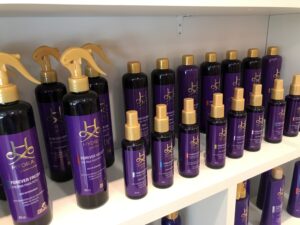
Pet Society supplies around 200 skus under a number of brands. Hydra is the key brand for grooming salons, including shampoos and conditioners with moisturising, whitening, odour neutralising properties, with the high-performance Hydra Luxury Care designed to give pet owners a premium product for home use.
Beeps is the main consumer brand with a value for money price, while Amazonia is vegan and biodegradable, PS Care has an environmentally-friendly positioning and Soft Care is for veterinary use. The company also holds the worldwide licence for Hello Kitty pet grooming products and has won a number of international awards from events such as Superzoo and Zoomark Pet Vision.
To produce its range, it imports ingredients from 17 countries and exports finished product to 65 countries worldwide through a network of distributors. Products are available in the UK through Redcape.
In Brazil, grooming salons are often connected to veterinary clinics, and it is hygiene-related products that are showing the biggest growth for Pet Society.
By ensuring that the products are safe for pets, and kinder to users too, bathing becomes more regular, and better cleaning equals better hygiene, explains executive president Luciano Fagliari.
“Just like in humans, hygiene equals health,” he says. “And the maintenance of good health prolongs life.”
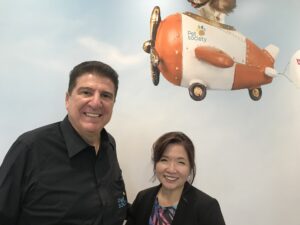
Growth in supplements
The trend towards improving pet health is also evidenced by the success of Vetnil, a producer of supplements and veterinary products based in Campinas, near Sao Paulo.
Started 30 years specialising in equine supplments and medicines, but in recent years has expanded into the domestic pet market, which now accounts for 70% of sales.
The company produces wet and dry products, including tablets, pastes, liquids and powders, and is currently developing a huge new facility that will give the company room to expand considerably as well as improving facilities for workforce and the efficiency of logistics.
Vetnil exports to 16 countries, with Slovenia acting as the hub for European operations, and takes great care to manage its products’ expiry dates – such is the size of Brazil, a lorryload leaving Campinas and heading for the far north of the country can take up to 30 days to reach its destination by road.
The Brazilian pet care market
Brazil has the third largest pet population in the world, behind only the US and China.
In a nation of more than 200 million inhabitants, Brazilians own an estimated 160 million pets overall, located in more than 32 million households, including 60 million dogs and 30 million cats.
Brazil is also the second largest producer of pet food in the world. Pet food is growing at 5-6% by volume annually and makes up around 55% of total pet care revenue but there is still room for further growth, as only around 45% of Brazilian pet owners feed their pets with prepared pet food. (Figures courtesy of Instituto Pet Brasil).
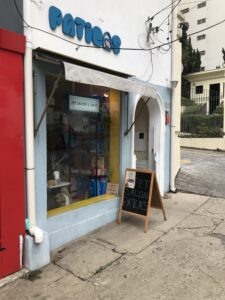
There are around 42,000 pet stores in Brazil, mainly small independently-owned stores. In April, major specialist retailers Petz and Cobasi announced plans to merge their businesses in order to better combat online operators. The deal, which is still subject to regulatory approval, will give the combined operation 494 stores in 140 cities and represents 10% of the retail market, but virtually all of the Brazilian pet superstore market.
Paulo Nassar, founder and ceo of Cobasi will be the new chief executive while Sergio Zimmerman, founder and ceo of Petz, will become chairman.


